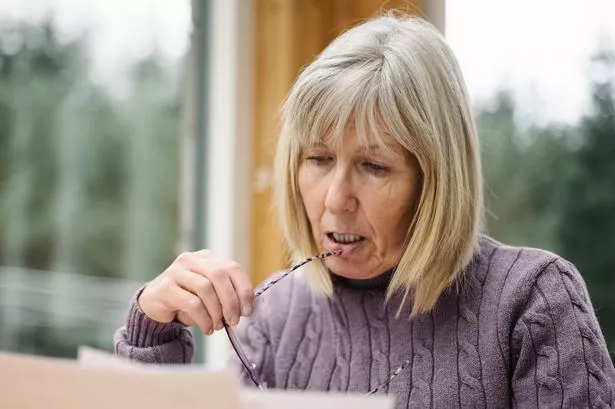It could have a bearing on how much money you receive after retiring
Linda Howard and Fiona Callingham Lifestyle writer
00:46, 24 Sep 2025
 You may not realise that you’ve not paid enough National Insurance to qualify for the State Pension(Image: Getty)
You may not realise that you’ve not paid enough National Insurance to qualify for the State Pension(Image: Getty)
Brits nearing retirement age have been cautioned that they may not be eligible for a full State Pension. To qualify, people must have worked for a specific number of years and made National Insurance contributions.
The Department for Work and Pensions (DWP) has released new figures showing that out of the 4.5 million older people currently receiving the New State Pension, more than two million (45 per cent) do not receive the full entitlement of £230.25 per week, which amounts to approximately £11,973 for the current tax year.
As reported by the Daily Record, DWP data also indicates that 200,721 pensioners receive less than half of the full weekly payment (£230.25). This is due to the requirement of at least 35 years’ worth of qualifying National Insurance Contributions (NI) to qualify for the full State Pension, with a minimum of 10 qualifying NI years needed to be eligible for any amount.
 DWP data indicates 200,721 pensioners receive less than half of the full weekly payment(Image: Getty)
DWP data indicates 200,721 pensioners receive less than half of the full weekly payment(Image: Getty)
Recent research conducted by retirement specialists at Just Group found that fewer than six in 10 (57 per cent) adults of State Pension age or older knew how many years’ worth of NI contributions they need to claim the full State Pension.
The study discovered that 13 per cent of people over 66 said that the State Pension accounted for over 90 per cent of their monthly household income, with 44 per cent stating that it represented more than half of their household income.
Stephen Lowe, group communications director at Just Group, said: “Before people claim the State Pension, we’d urge them to check if they will actually receive the full New State Pension and if not to review their NI record to see where they have gaps in their record.
“For some, it may make sense to pay extra to make the contributions voluntarily and retrospectively for the previous six tax years. The extra income over the course of a retirement may offset the initial cost of these contributions.
 People need at least 35 years’ worth of qualifying National Insurance Contributions (NI) to qualify for the full State Pension(Image: getty)
People need at least 35 years’ worth of qualifying National Insurance Contributions (NI) to qualify for the full State Pension(Image: getty)
“For others who may have spent time out of the workforce on maternity leave or providing care for loved ones, for example, they may be eligible to claim NI credits which can help fill in gaps and build extra State Pension income for free.”
National Insurance records can be boosted by purchasing voluntary Class 3 National Insurance contributions, though these can only be bought for the past six tax years.
Nevertheless, before people begin collecting the State Pension, they can obtain credits to fill holes in their NI records for different circumstances including maternity leave, joblessness, illness or caring duties.
State Pension age
The State Pension age is set to start its ascent from 66 to 67 next year, with the hike expected to be fully in place for all men and women across the UK by 2028. This planned change to the official retirement age has been on the books since 2014, with another increase in the State Pension age from 67 to 68 due to occur between 2044 and 2046.
This contributory benefit provides vital financial aid to nearly 13 million older people across the country, including over a million pensioners living in Scotland.
READ MORE: DWP issues urgent ‘protect’ message to anyone with a pension as savings could be lostREAD MORE: Universal Credit exceptions that could be worth hundreds of pounds a month
Many people nearing the official retirement age this year (or next) and eligible to begin claiming State Pension from the DWP, or those nearing 55 and keen to start drawing from a personal or workplace pension, may not be aware of a handy checklist provided by Citizens Advice. You can find this checklist here.
Your State Pension age is the earliest age at which you can start getting your State Pension. It might differ from the age at which you can receive a workplace or personal pension.
You can check your State Pension age online here.

